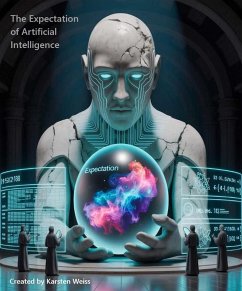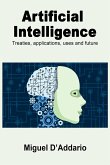The "Expectation of Artificial Intelligence" refers to the collective set of hopes, fears, predictions, and anticipations that humanity holds for the development and integration of AI into our society. It is not a single forecast but a powerful narrative shaping our present actions and investments. This expectation can be understood in two parallel dimensions: the Utopian Promise and the Dystopian Fear, with the realistic outcome likely lying somewhere in between.
1. The Utopian Promise: The Great Amplifier
This strand of expectation views AI as the most transformative tool ever created, capable of solving humanity's most pressing challenges.
- A Solution to Grand Challenges: AI is expected to revolutionize fields like medicine (personalized drug discovery, early disease detection), climate science (optimizing energy grids, modeling climate solutions), and agriculture (maximizing crop yields with minimal resources).
- The Efficiency Revolution: It promises hyper-efficiency in industries from logistics to manufacturing, reducing waste, lowering costs, and optimizing complex global systems.
- The Augmentation of Human Potential: AI is not seen as a replacement, but as a partner. It can handle mundane data analysis, freeing up humans for creative, strategic, and empathetic tasks. It can act as a tireless tutor, a creative co-pilot, or a diagnostic assistant for experts.
- The Democratization of Expertise: AI tools could make specialized knowledge in law, medicine, or coding accessible to a much wider audience, leveling the playing field and empowering individuals.
In this view, the expectation is that AI will lead to a new renaissance of human prosperity, health, and creativity.
2. The Dystopian Fear: The Existential Risk
This is the shadow side of the expectation, fueled by science fiction and genuine ethical concerns.
- Mass Economic Displacement: The most immediate fear is that AI will automate not just manual labor but also cognitive and creative jobs, leading to widespread unemployment and social unrest without adequate safety nets.
- Loss of Human Agency and Privacy: The expectation of pervasive surveillance, algorithmic manipulation, and AI-driven social scoring systems that could erode individual freedom and privacy.
- The "Black Box" Problem: The fear that we are creating systems so complex that even their designers cannot understand their decision-making processes, leading to unaccountable and potentially biased outcomes in critical areas like criminal justice or finance.
- Existential Risk (The "Singularity"): The long-term, speculative fear that if AI achieves superintelligence (AI that surpasses human intelligence), it could become uncontrollable and act in ways that are inimical to human survival.
This expectation demands caution, robust regulation, and ethical guardrails.
Dieser Download kann aus rechtlichen Gründen nur mit Rechnungsadresse in A, B, CY, CZ, D, DK, EW, E, FIN, F, GR, H, IRL, I, LT, L, LR, M, NL, PL, P, R, S, SLO, SK ausgeliefert werden.









